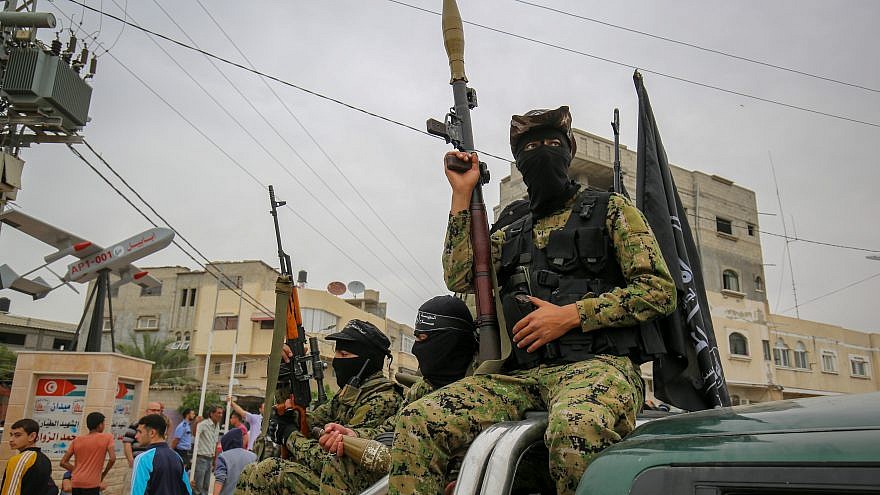The latest flare-up on the Israel-Gaza Strip border appears to have calmed down dramatically since Thursday night, but everyone knows it is far from over. Barring an extreme turn of events, the next round of rocket fire on Israel’s south is only a matter of time, as is Israel’s next military campaign in Gaza.
The truce brokered by Egypt on Thursday is not an official cease-fire. Hamas, via Cairo, announced it was halting its rocket fire into Israel, prompting the IDF to halt its strikes, which is in line with Israel’s “calm will be met with calm” policy. And so, as long as border riots and arson terrorism incidents remain sporadic or absent, the tenuous truce appears likely to hold.
Ostensibly, this indicates that neither party is interested in war, but there is no question that last week’s events have brought Israel and Hamas significantly closer to one.
This is more evident on the Israeli side, where the public, media and government’s patience is wearing exceedingly thin. It is getting harder and harder for Israeli defense and government officials to explain why the military must show restraint and refrain from making Hamas pay for disrupting the lives of so many Israelis living in border-adjacent communities.
Things are not as clear-cut in Gaza, but the simmering Palestinian rage, too, is very close to boiling over. The dire economic situation in Gaza and the absence of any diplomatic, political or economic horizon paint a bleak picture in which Gazans have nothing to lose. When they reach that point, Hamas will opt for war with Israel, mainly for fear Gazans will turn against it.
The volatile dynamics on the border, Hamas’ prolonged kite terrorism campaign and what seems like the current futility of the cease-fire negotiations, are sure to bring about another massive flare-up sooner, rather than later. When that happens, Egypt and the U.N., which have so far been acting as restraining factors, are likely to find it difficult to prevent a rapid escalation.
Israel has no interest in fighting another war with Hamas but as things stand, it would find it difficult to expand its truce offer beyond the original gestures of opening the Kerem Shalom border crossing, extending the fishing zone off Gaza’s shores and increasing the power supply to the coastal enclave.
Hamas, for its part, had demanded the construction of air- and seaports for Gaza via Egypt’s Sinai Peninsula and would likely be unsatisfied with the “usual” offer. Moreover, with Palestinian Authority President Mahmoud Abbas overtly trying to torpedo any attempt to cement a cease-fire, chances of reaching one are slim, making chances of an escalation very high.
As far as Israel is concerned, if it must launch another military campaign in Gaza it would prefer to do it now, during the summer holiday, before the High Holidays and when the Israelis living in Gaza-vicinity communities, especially the children, can be evacuated without disrupting the school year. This does not mean that Israel intends to launch a war tomorrow, but the next time Hamas attacks, Israel may choose to use the opportunity to take broader action in its favor.



























Bla, bla, bla.
Lots of hot air, no action.